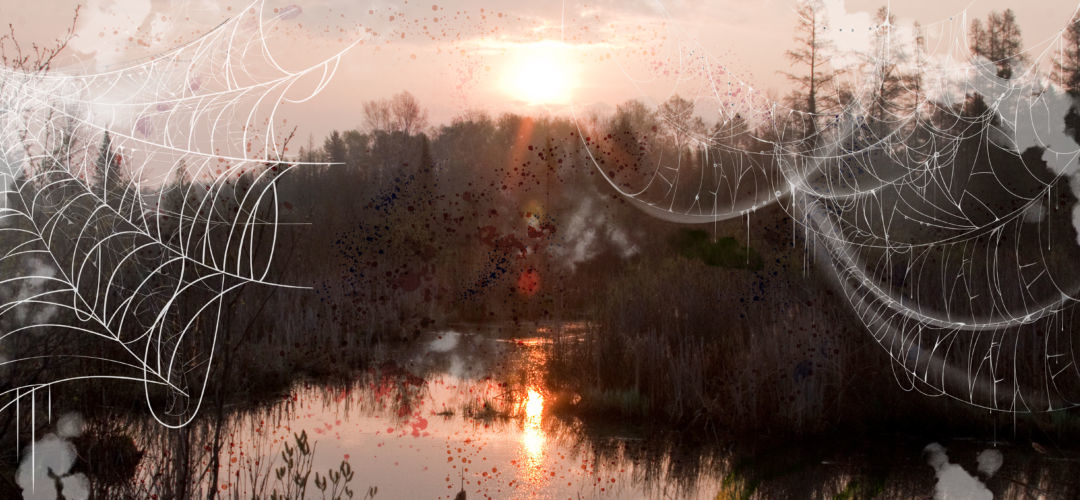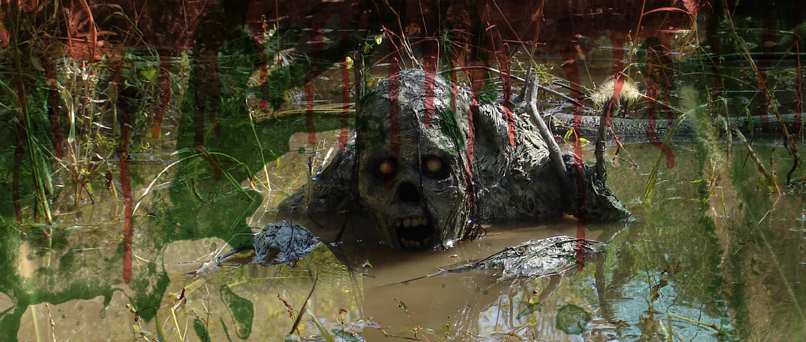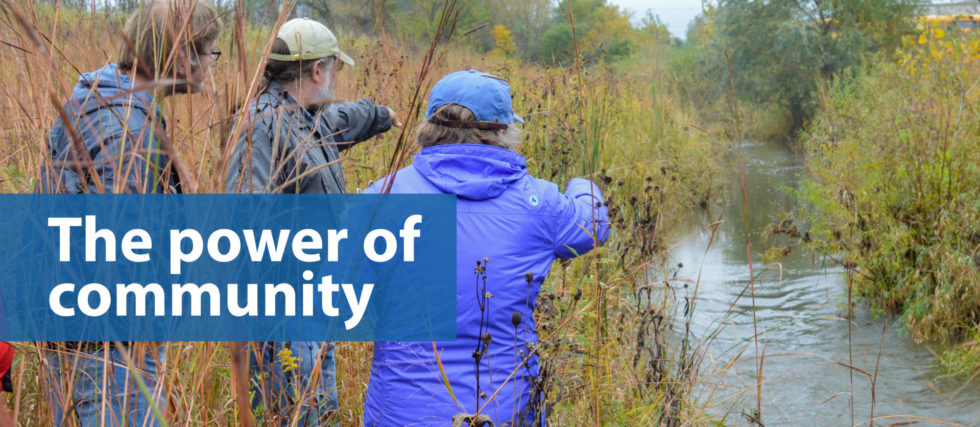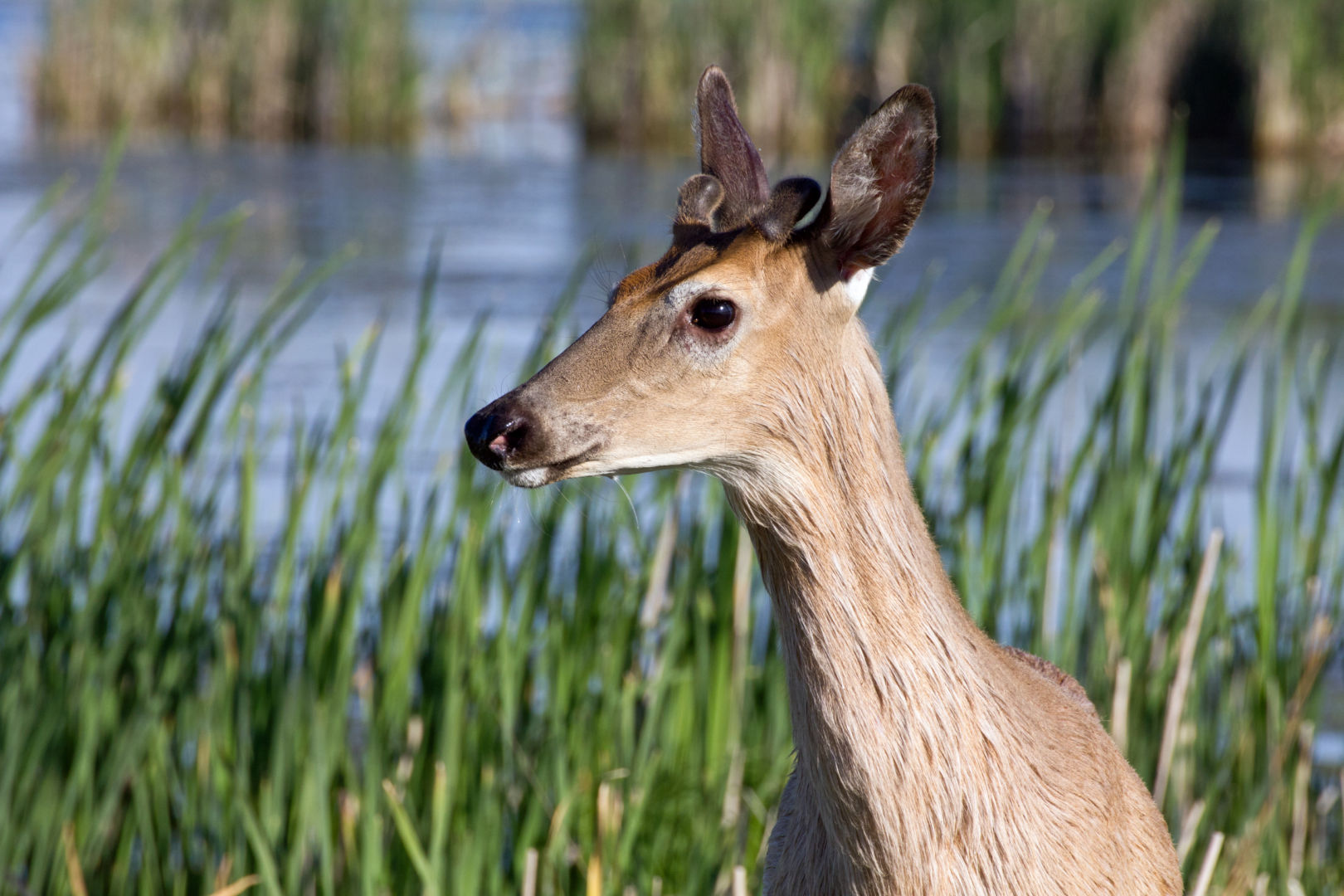This Halloween, we invite you to consider the long-standing, erroneous perception that wetlands are dark and dreary places to be avoided. This perception continues today and is the root of many of the challenges wetlands face. As humans, we’re generally afraid of things we don’t understand. Our fear this Halloween season is that, without an emphasis on the understanding, appreciation, and enjoyment of wetlands, future policy and land use decisions will increasingly be left in the hands of individuals unappreciative of the values wetlands provide.
The universal fear associated with wetland habitats transcends history, geography, and culture. Alongside monsters and ghosts, society attributes other undesirable characteristics to wetlands. They’re frequently associated with disease, dangerous animals, muck that can swallow you whole, poisonous gases, death, and decay. Words used to perpetuate that perception of wetlands as undesirable places include: dismal, miasma, putrid, and pestilent. As our Outreach Programs Director, Katie Beilfuss, often reminds us, we frequently use wetland phrases to describe unfavorable conditions: bogged down, swamped, mired. She suggests we use alternatives such as paved over, drained, or dredged when circumstances are not to our liking.
As a part of our Halloween celebrations, many of us enjoy scary movies. Unfortunately, most wetland-themed Halloween flicks also perpetuate the bias against wetlands by featuring wetlands infested with giant radioactive leeches, alligator people, crazy cannibal hermits, and even Nazi zombies. We know of only one Halloween movie that attributes its ensuing horrors to wetland drainage and destruction. That movie is The Mummy’s Curse (1944), starring Lon Chaney Jr. as the mummy. This movie, a sequel to The Mummy’s Ghost (1944) in which the monster was defeated when he was chased into a Louisiana marsh, begins with the large scale drainage of the entombing marsh, allowing the mummy to escape his watery grave and rampage the countryside. This movie represents a refreshing genre-breaking way of pointing out another argument against wetland drainage—it keeps the mummies from escaping!
So this Halloween, as you watch The Mummy’s Curse, read about Jenny Greenteeth, and ponder the fate of being tickled to death by the ghosts of Russian maidens, remember that wetlands provide not only important ecological services, but are also a source of rich human history, storytelling, and cultural history. Let’s take care of them so our future generations can continue these traditions.
Photo by Monika Blazs, pattern vector created by vectorpocket.
Related content
9 Wetland Monsters from World Folklore
Tales of malevolent beings or spirits in wet and mucky places are found the world over.
Why healthy wetlands are good news for deer hunters




